Syrian Breakfast
November 10th, 2009
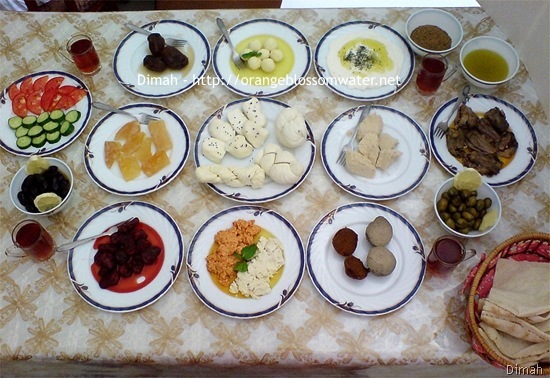
A Typical Syrian Breakfast consists of Syrian Cheeses, Eggs, Foul Mdammas (Fava Beans Salad), Halawa, Hummus, Jams, Laban Arabi (Sheep’s Milk Yogurt), Laban Baqari (Cow’s Milk Yogurt), Labneh, Makdous, Olives (Green Olives and Black Olives), Olive Oil, Qarisheh, Shanklish, Sliced Cucumber, Sliced Tomato, Za’atar, served with Khubz Arabi (Arabic Bread) and Tea. Mamouniyeh and Sha’eebiyyat are also served for breakfast.
In my future posts, I will write in details about these topics:
Jebneh (Syrian Cheeses)
Qarisheh and Shenklish
Za’atar
Zaytoon (Olives – Green Olives and Black Olives)
More pictures:
Scroll down for pictures, and read about the Aghabani Tablecloth, and about Typical Syrian Breakfast.
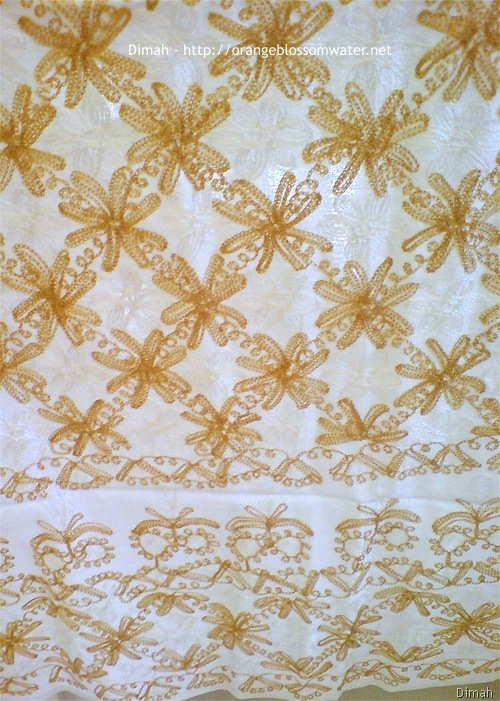
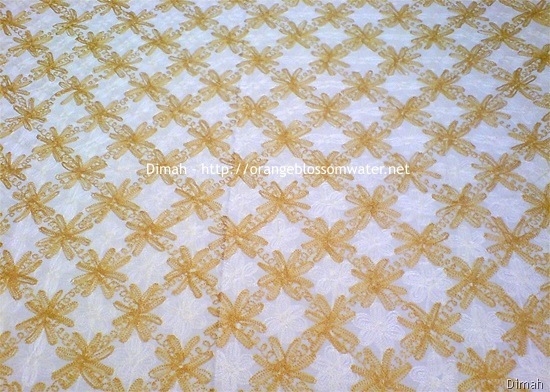
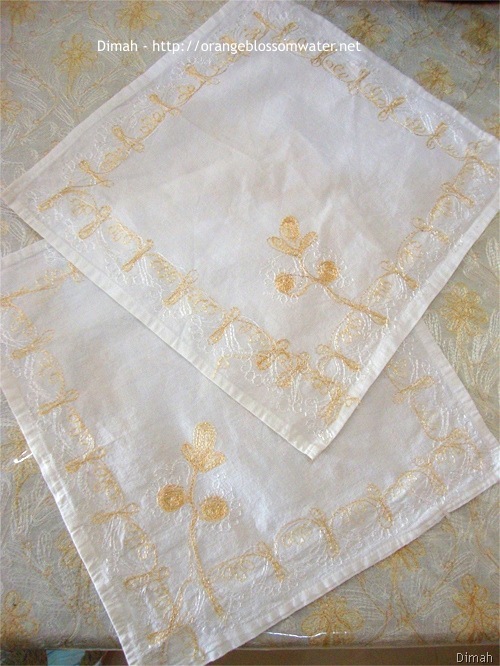
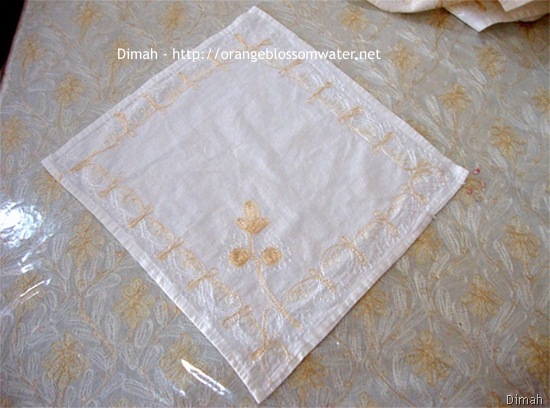
Above: Four pictures of table cloth and Napkins. I want to tell you these information about this tablecloth.
Aghabani Tablecloth
The name Aghabani is said to come from the original saffron colored embroidery as well as the type of stitch used. In the past both the material and embroidery thread were made of silk, however to accommodate practicality and affordability, the silk material and thread was replaced with 100% cotton and man-made silk thread for the material and embroidery. There are many names for the various Aghabani designs such as ‘Joklan’, ‘Zaher’, ‘Al-Ghareeb’, ‘Wardat Al Subeeya’, Al-Fole’, Hab Al-Bondok’, ‘Hab Al-Snobar’.
All the designs come from surrounding flora in the region. Some experts believe that Aghabani production started in Homs and then moved to Damascus due to lack of demand and workers, others say that Aghabani production originated in Damascus.
Known for its versatility, the Damascene artisans took Aghabani embroidery and expanded its use to all sorts of textile goods including clothing and tablecloths. Today the embroidery and manufacturing of Aghabani textile goods are made in Douma and Harasta (2 small towns outside of Damascus ). The designs are printed on material and filled with embroidery of different colored threads. Because each seamstress has his or her way of completing the embroidery it is hard to get 2 pieces the same.
Aghabani tablecloths also come with a set of embroidered napkins. It comes in different sizes, with 6 or 8 or 12 napkins depending on the size of the tablecloth, the original Aghabani is made from gold threads but lately you can find it in different colors.
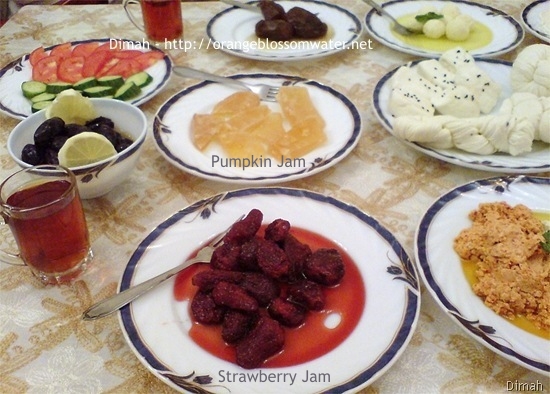
Above:
Strawberry Jam.
Pumpkin Jam.
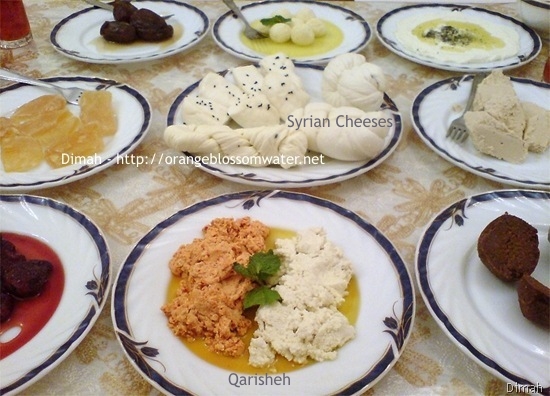
Above:
Qarisheh.
Syrian Cheeses.
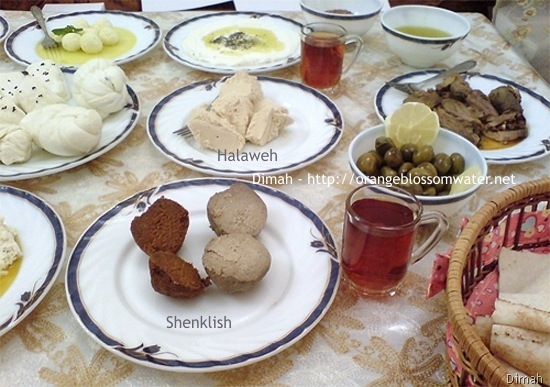
Above:
Shenklish.
Halaweh Tehiniyeh.
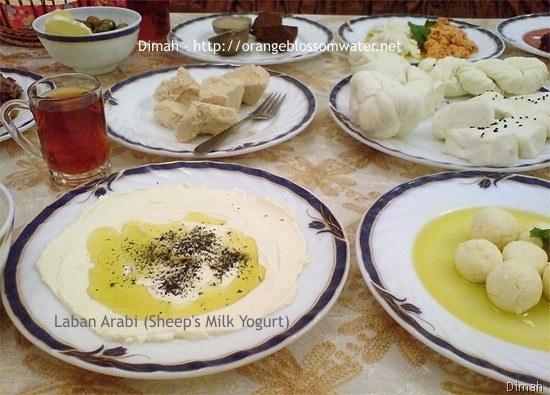
Above:
Laban Arabi (Sheep’s Milk Yogurt).
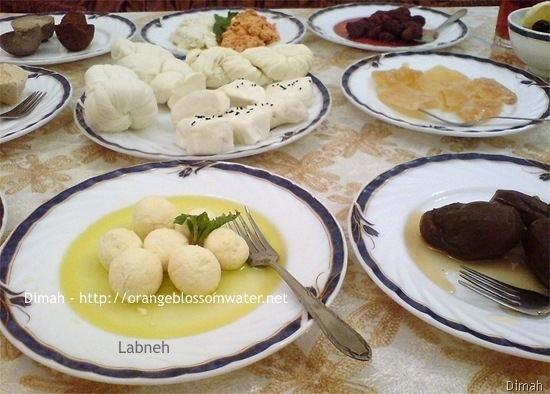
Above:
Labneh.
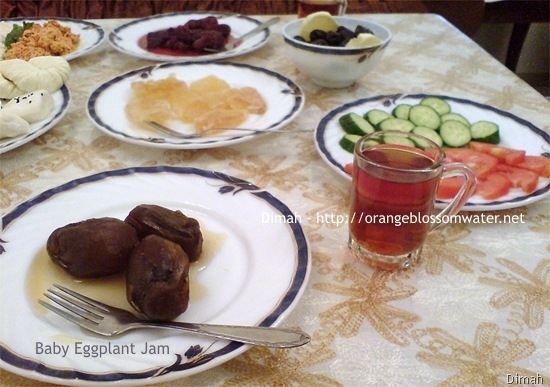
Above:
Baby Eggplant Jam.
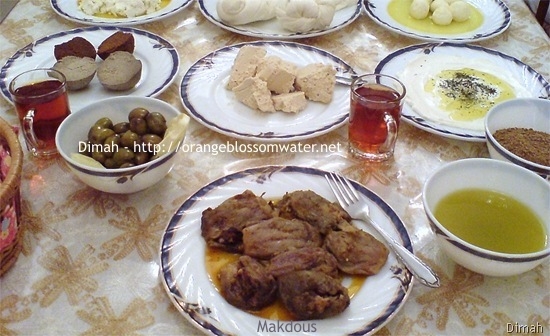
Above:
Makdous.
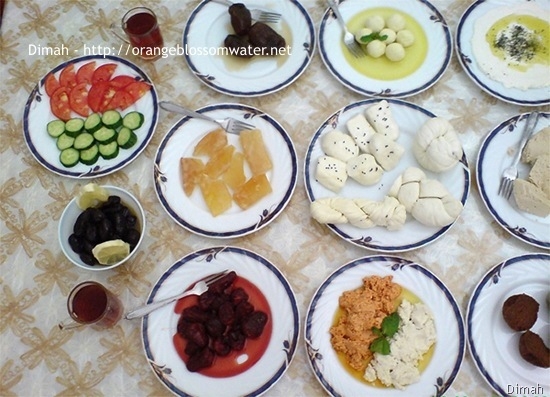
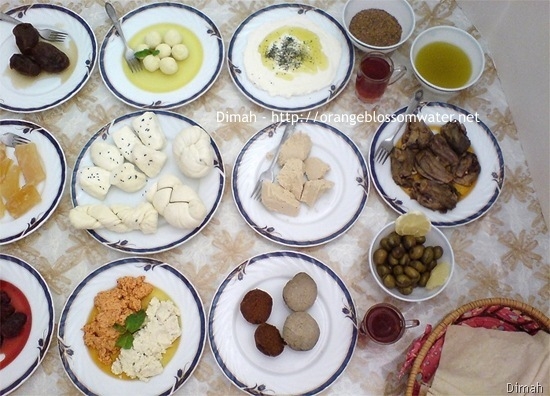
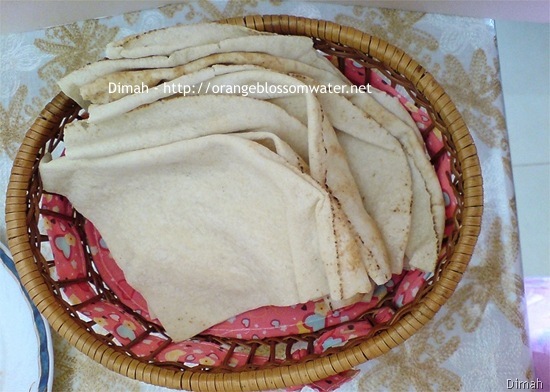
Above:
Khubz Arabi (Arabic Flat Bread), I like to cut the bread into triangles.
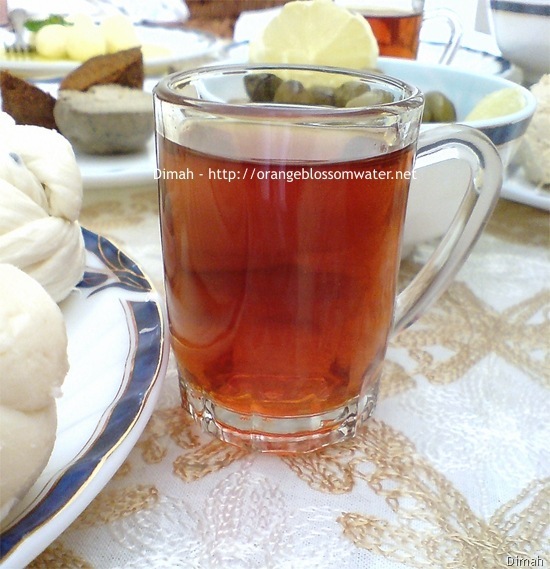
Above:
Tea.
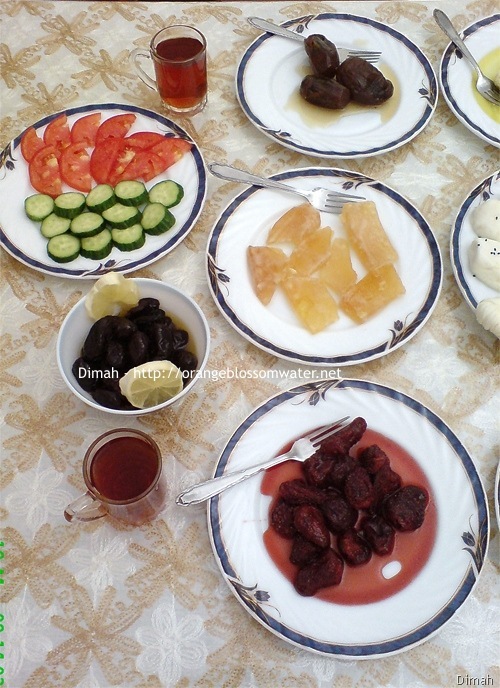

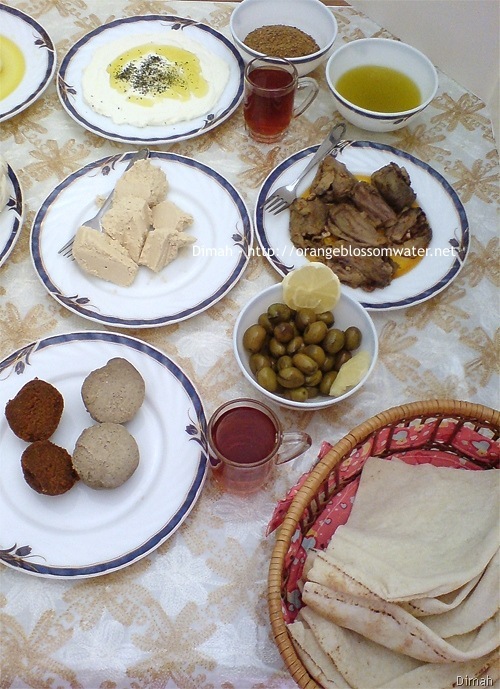
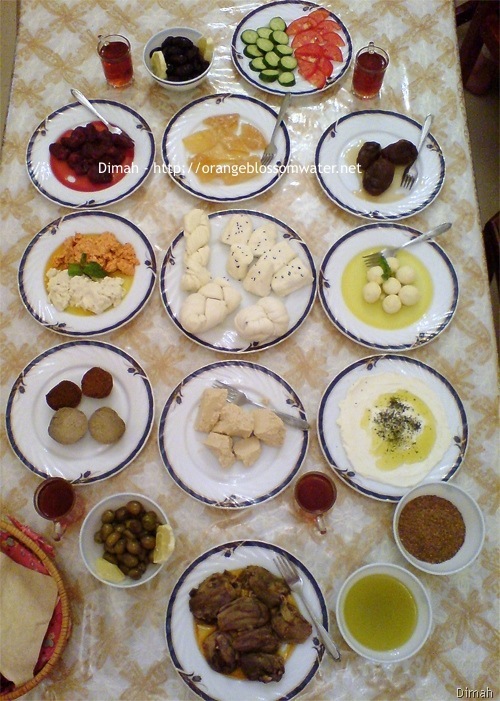
Above:
You can see in the picture everything, Syrian Cheeses, Halawa, Jams, Laban Arabi (Sheep’s Milk Yogurt), Labneh, Makdous, Olives (Green Olives and Black Olives), Olive Oil, Qarisheh, Shanklish, Sliced Cucumber, Sliced Tomato, Za’atar, served with Khubz Arabi (Arabic Flat Bread) and Tea.
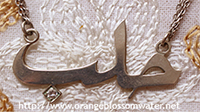
Wow that looks like an incredible breakfast!!!
Thanks for presenting the information about the tablecloths. I have learned alot from your blog and thank you for the detailed instructions provided with your photographs. Keep it up — I look forward to the next posting.
Simply life: Thanks for stopping by!
Marsha: Thanks for the lovely comment! You are so kind :)
That is an incredible assortment of delicious food. What a breakfast! The information about the tablecloths was great…wonderful post.
I have a few Damascene tablescloths that I cherish. I wish to go someday to Damascus and purchase more!
Lisa: Many thanks for your lovely comment!
tasteofbeirut: if you come to Hama, you will find tablecloths, they are not only available in Damascus ;)
Thanks for your nice comment!
Woooooowww !!! What a great n huge spread of breakfast. Am sure my stomach will full for a whole day hhhhhhh :D … am really really really really loooooooooooves all Syrian food … am one of kind of Arabic food fond♥♥♥ if am giving chances, I would like to learn more bout Syrian cuisine.
Hi, Dinah! Do you, perchance, live on the West Coast? Our granddaughter teaches an elementary school class if 21 students, 18 of whom are Syrian. The father of one of the children was the pastry chef at the Four Seasons in Damascus. His family of five (three children ranging in age from 4-9 years) will be our guests today for the very first time, and we are very excited.
I read that the tradition of “Easter eggs” goes back 9,000 years to pagan times. Does Syria have a similar tradition of decorating hard-boiled eggs for children? If so, when is it done, and what is it called?
Also, where can I purchase a tablecloth/ napkin set like the ones you describe large enough for a 10′ dining room table, and what would be a reasonable price?
Your blog is very interesting, informative, and edifying. If more Americans could learn more about different cultures , our society would become more inclusive and accepting.
Thank you very much! Ed Leon in San Diego
(Retired teacher of German, Russian, Spanish, and ESL)
Hi Ed,
Thank you so much for stopping by and for you kind words, appreciate it.
I live in Dubai, United Arab Emirates.
Yes, we have the tradition of decorating eggs.
I do not know where you can buy Aghabani Tablecloth in USA.
The tablecloth in the photo is for 12 seater dining table, I bought it from Syria and the price of it before war was 1500 Syrian Pounds (Before war: 1 Dollar = 50 Syrian Pounds), now the price of this tablecloth is 30,000 Syrian Pounds (Now: 1 Dollar = 500 Syrian Pounds). Recently I bought a new Aghabani Tablecloth here in Dubai (made in Syria) for 8 seater dining table, it’s price is 25,000 Syrian Pounds (which is 50 US dollars).
Hi Dimah where did you buy the tablecloth in Dubai? Shukran
Ahlan Salma,
Ι bought the tablecloth from Syria.
Ahlein Dimah, I read in the comment above that you recently bought a new Aghabani tablecloth in Dubai. I live in North America but visiting UAE and would love to be able to find one in Dubai.
Alf shukr
Ah you are right, I thought you were asking about the one in the pictures – it is from Syria. The other one here http://www.orangeblossomwater.net/index.php/2018/02/28/syrian-breakfast-ii/ is from “Dubai / Khan Murjan in Wafi Mall” – actually I do not know the name of the shop but it is the only shop there that sells Aghbani. I think if you visit global village, you may also find Aghbani in Syrian Pavilion. توصلي بالسلامة
Hello, my name is Patricia Morrow. I work for a charity in Northern Ireland who support Syrian refugees. I have viewed your list of foods.
Our staff are always offered hospitality when they visit the homes of our new friends, and they feel guilty about receiving this food. We know that this is your custom, and here in Northern Ireland, we also offer every visitor tea and bread /food – this is our custom also.
I will source the ingredients, as I make hummous and tabbouleh at home.
Would our friends be insulted if we source the ingredients for their food, to be offered as gifts, and as a sign of love and welcome.
Hi Patricia,
I agree with Saleh, please check his comment :)
Hello Patricia,
I think this is a wonderful idea. Syrians find comfort in cooking at home, with authentic ingredients, which may be difficult for them to find. Offering them the source ingredients instead of prepared food will be very welcome and will allow them to try out their own recipes and own way of making Hummus, for example. There are as many ways of making Hummus, Tabbouleh, Fattoush, and Baba Ghannouj as there are families from Syria.
Thank you for your noble work.
Saleh (from California)
Thank you so much Saleh
مية السلامة كتير انبسطت أنك زرت الموقع، وشكراً كتير إلك